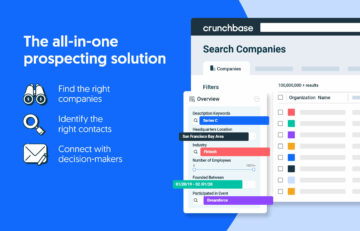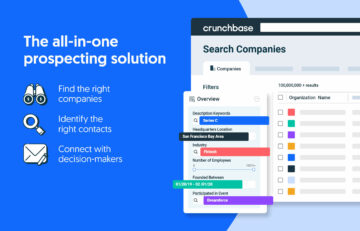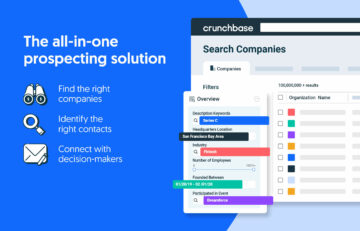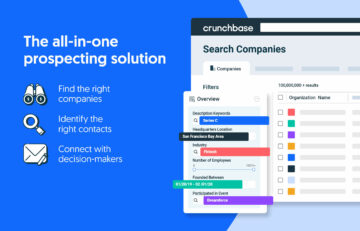Your startup is gaining momentum and you’re ready to raise capital to scale.
Great, but from whom?


Not all capital is created equal and choosing the right investment partner could be critical to your next phase of growth. Chances are you’ve started to compile a list of well-known VCs to target, but how do you evaluate the investors to determine who would be the best fit?
In my almost two decades of venture investing, I’ve experienced the inner workings of both generalist and specialist VC firms. Each has its pros and cons, and understanding the differences in mindset, process and value-creation between the two types is essential as you embark on your fundraising journey.
Here are a few key questions to ask yourself before meeting with funds:
1. Why am I raising money, and why now? This isn’t just about the cash; think strategy. Are you looking to scale, enter new markets or speed up development? A generalist VC might offer you breadth and diverse connections across many sectors, but could need more explanation to fully understand your market or customer persona. In contrast, a specialist VC could provide unique customer insights to help refine your product or test in a live environment, and therefore could be a better fit for industry-defining solutions.
2. What value am I looking for from my VC partner? Generalist VCs typically provide a broad network and diversified market exposure. Specialist VCs can offer targeted support, including detailed governance, regulatory understanding, ROI metrics and competitive intelligence. But be prepared — they may look more carefully at the specifics of your business model. If you’re comfortable with that, you can get insightful feedback that can help shape your company’s vision for the future.
3. What investor mindset aligns with my growth trajectory? Whether you’re focused on financial growth, social impact or industry innovation, make sure the VC’s long-term investment thesis aligns with your business goals and mission. In the end, sometimes it’s all about personality and passion. Is this investor a true believer in your space, or do they dabble in and out as markets turn?
One type isn’t necessarily better than the other — it just comes down to the best fit for your circumstances. And of course, keep in mind that my perspective is that of a specialist VC. I lead SE Ventures, a Silicon Valley-based fund focused on climate tech, energy management, mobility, cybersecurity and industrial automation. Our aim is to deliver significant value to our portfolio founders beyond capital through commercial acceleration, domain expertise, ecosystem connections and the global customer reach of our LP, Schneider Electric.
Ultimately, the value you get from a VC often depends more on your personal chemistry with the individual partner you work with, regardless of the type of firm. Finding an investor who inherently gets you, your industry and the nuances of your vision is a critical win-win that could be the difference in your success.
Amit Chaturvedy is the managing partner and global head of SE Ventures, where he oversees the 1 billion euro global venture investments platform.
Illustration: Dom Guzman
Search less. Close more.
Grow your revenue with all-in-one prospecting solutions powered by the leader in private-company data.


Stay up to date with recent funding rounds, acquisitions, and more with the Crunchbase Daily.
Through the third quarter of this year, 64 companies have been added to the board, averaging around seven new companies per month. That’s down from…
- SEO Powered Content & PR Distribution. Get Amplified Today.
- PlatoData.Network Vertical Generative Ai. Empower Yourself. Access Here.
- PlatoAiStream. Web3 Intelligence. Knowledge Amplified. Access Here.
- PlatoESG. Carbon, CleanTech, Energy, Environment, Solar, Waste Management. Access Here.
- PlatoHealth. Biotech and Clinical Trials Intelligence. Access Here.
- Source: https://news.crunchbase.com/venture/generalist-specialist-startup-investor-chaturvedy-se-ventures/
- :has
- :is
- :where
- $UP
- 1
- 300
- a
- About
- acceleration
- acquisitions
- across
- added
- aim
- Aligns
- All
- all-in-one
- almost
- am
- an
- and
- ARE
- around
- AS
- ask
- At
- Automation
- averaging
- BE
- been
- before
- believer
- BEST
- Better
- between
- Beyond
- Billion
- board
- both
- breadth
- broad
- business
- business model
- but
- by
- CAN
- Can Get
- capital
- carefully
- Cash
- chances
- chemistry
- choosing
- circumstances
- Climate
- Close
- comes
- comfortable
- commercial
- Companies
- Company’s
- competitive
- Connections
- Cons
- contrast
- could
- course
- created
- critical
- CrunchBase
- customer
- Cybersecurity
- daily
- data
- Date
- decades
- Deciding
- deliver
- depends
- detailed
- Determine
- Development
- difference
- differences
- diverse
- diversified
- do
- domain
- down
- each
- ecosystem
- embark
- end
- energy
- Enter
- Environment
- equal
- essential
- Euro
- evaluate
- experienced
- expertise
- explanation
- Exposure
- feedback
- few
- financial
- finding
- Firm
- firms
- fit
- focused
- For
- founders
- from
- fully
- fund
- funding
- funding rounds
- Fundraising
- funds
- future
- gaining
- get
- Global
- Goals
- governance
- Growth
- Have
- he
- head
- help
- How
- HTTPS
- i
- if
- Impact
- in
- Including
- individual
- industrial
- industrial automation
- industry
- inherently
- Innovation
- insightful
- insights
- Intelligence
- investing
- investment
- Investments
- investor
- Investors
- IT
- ITS
- journey
- jpg
- just
- Keep
- Key
- lead
- leader
- less
- List
- live
- long-term
- Look
- looking
- LP
- make
- management
- managing
- managing partner
- many
- Market
- Markets
- markets turn
- max-width
- May..
- meeting
- Metrics
- might
- mind
- Mindset
- Mission
- mobility
- model
- Momentum
- money
- Month
- more
- my
- necessarily
- Need
- network
- New
- next
- now
- nuances
- of
- offer
- often
- on
- or
- Other
- our
- out
- partner
- passion
- per
- personal
- Personality
- perspective
- phase
- platform
- plato
- Plato Data Intelligence
- PlatoData
- portfolio
- powered
- prepared
- process
- Product
- PROS
- provide
- Quarter
- Questions
- raise
- raising
- reach
- ready
- recent
- Recent Funding
- refine
- Regardless
- regulatory
- revenue
- right
- ROI
- rounds
- Scale
- Sectors
- seven
- Shape
- significant
- Silicon
- Social
- Social impact
- Solutions
- sometimes
- Space
- specialist
- specifics
- speed
- started
- startup
- stay
- Strategy
- success
- support
- sure
- Target
- targeted
- tech
- test
- than
- that
- The
- The Future
- therefore
- thesis
- they
- Think
- Third
- this
- this year
- Through
- to
- trajectory
- true
- TURN
- two
- type
- types
- typically
- understand
- understanding
- unique
- value
- VC
- VCs
- venture
- Ventures
- vision
- well-known
- What
- whether
- WHO
- whom
- why
- Win-Win
- with
- Work
- workings
- would
- year
- you
- Your
- yourself
- zephyrnet











